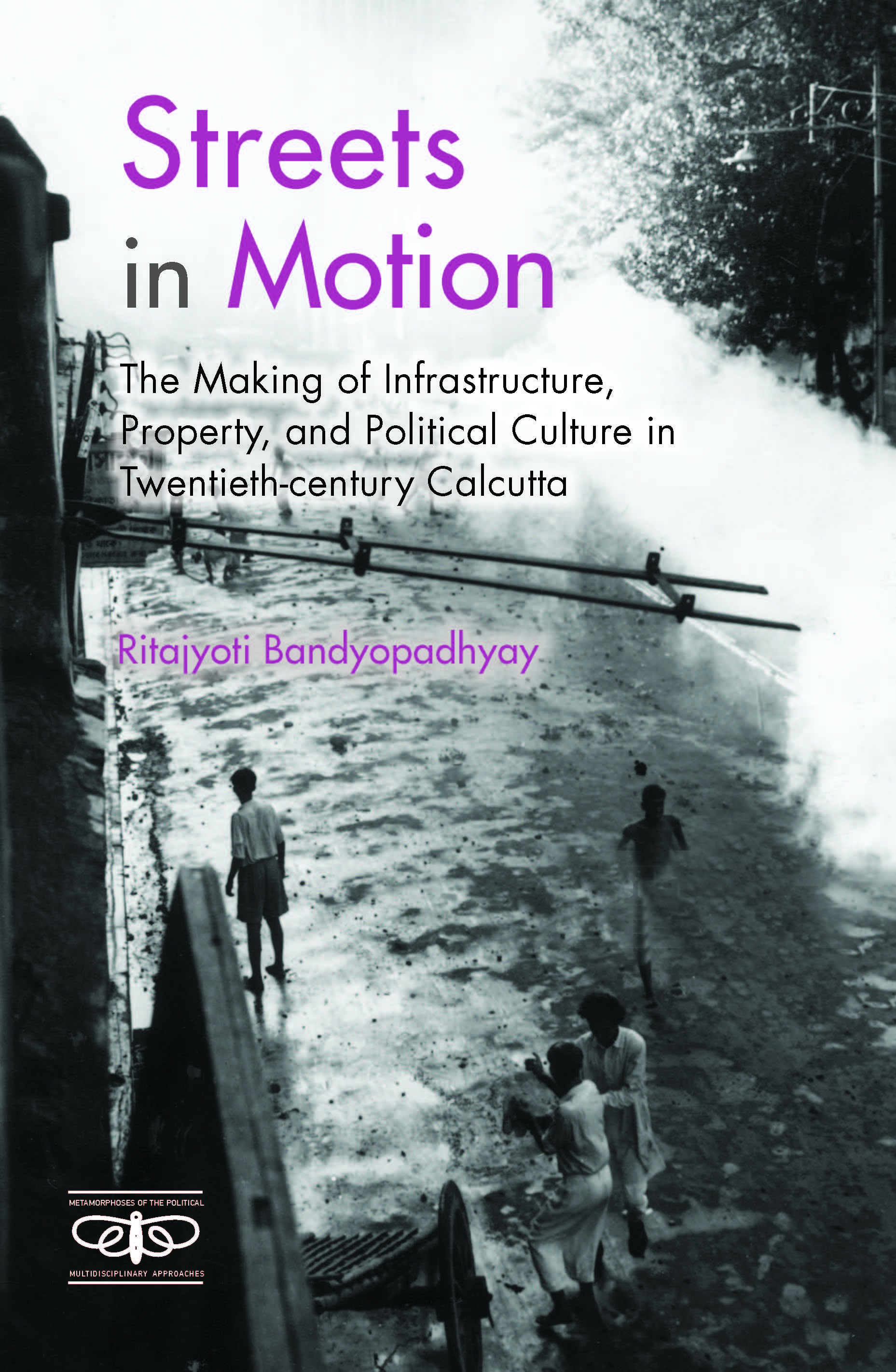Streets in Motion The Making of Infrastructure, Property, and Political Culture in Twentieth-century Calcutta
The book studies the social production of motion in a capitalist urban context. In the city of capital, motion refers to a fetish. The bourgeois order posits motion as a metaphor for energy, positivity, and progress—a norm—and obstruction (motion’s dialectical opposite) as delinquency. The book uncovers the social tectonics of spatial mobilization and thus demystifies motion. Who and what set spaces on the move? How did various classes of city dwellers activate, experience, and negotiate motion? Streets in Motion develops an approach to urban history by theorizing and historicizing the ‘street’ as an apparatus of city-making and subject formation. It works at two registers—a local history of Calcutta in colonial and postcolonial periods, and a theorizing of the logistical and political-cultural centrality of the street within this rubric. It is argued that the street is politics inasmuch as politics is the production of space.

Publisher
Cambridge University Press
ISBN
978-1-009-10011-3
Publication date
1 Jan 2022 – 30 Nov 2022
Specialisation
Social Sciences
Theme
Urban / Rural
Society
History
Diasporas and Migration
Region
South Asia
India